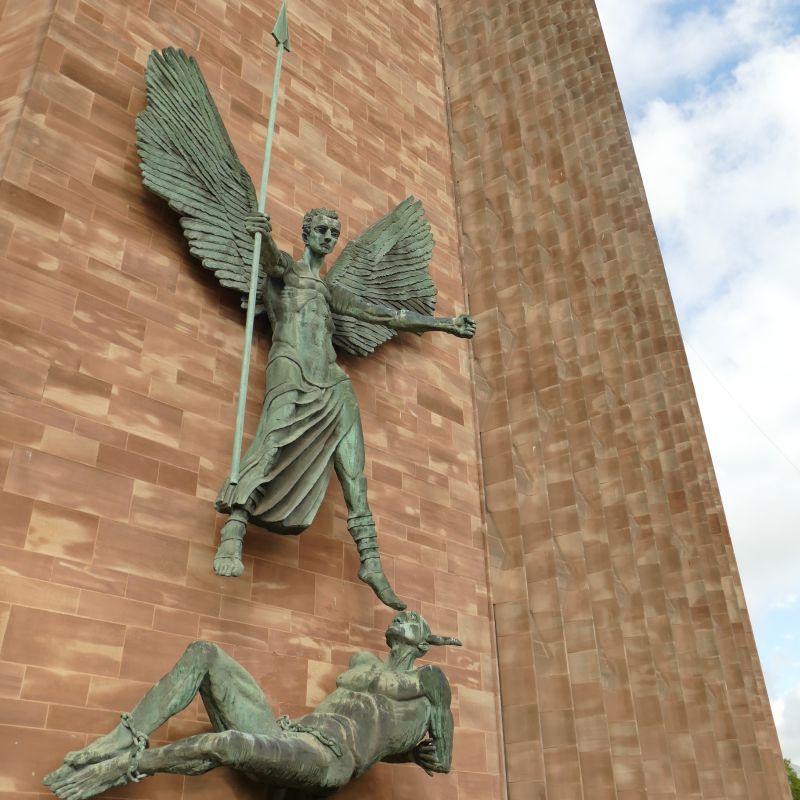
Cast in bronze by Jacob Epstein, 1959 for Coventry Cathedral
Photo (c) Stephen Craven
Today is Michaelmas, the feast of Saint Michael. Which is why I have chosen a hymn from the ‘Saints’ section of the hymnbook: ‘Thanks be to God for his saints’ by Timothy Dudley-Smith. Mind you, Michael is no ‘ordinary’ saint, he’s actually an Archangel, a created but eternal being. Best known for his appearance in the book of Daniel as the protector of God’s people, he also gets a brief mention in the books of Jude and Revelation, though no longer on the labels of a well known clothes brand of Jewish origin.
The hymn, though, or at least the first couple of lines, is more about the ‘ordinary’ saints, meaning not merely those who were specially canonised by the church as martyrs for their faith or allegedly responding to prayers addressed to them after their death, but the whole company of Christians who have passed over into eternal life. Whether or not they can actually answer prayers (and that’s a contested bit of Catholic theology) it is mainstream Christian faith that they are “one with us still in one body, one great congregation”.
The other verses aren’t really about the saints. The second thanks God for his daily blessings including the death and resurrection of Christ; the third, for our as yet unknown future in which Christ will keep us company, and the last for his calling and defence, not just of ‘special’ saints but of all who follow him.
We will have more opportunities to sing of the saints at the beginning of November.